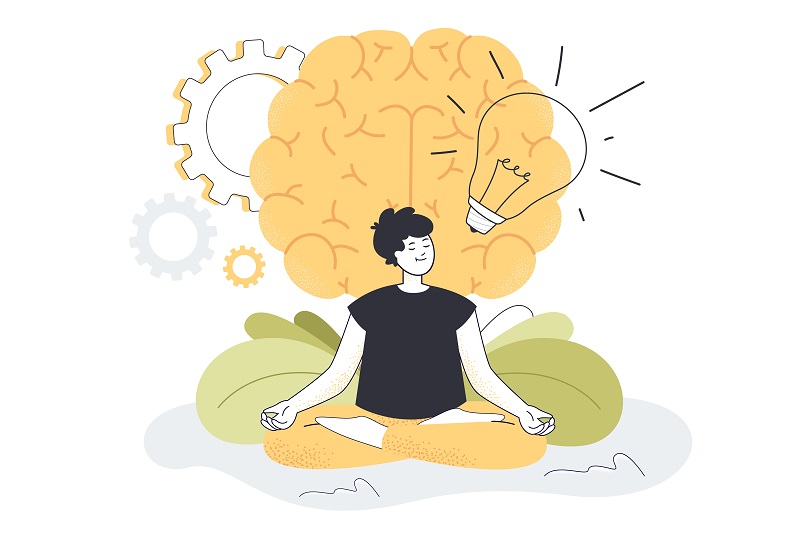Bhavna Malhotra
Consultant – Nutrition & Lifestyle
Email: bhavna.nutritionqueries@
Sleep is the most underrated healing and growth process of the body. With our lives revolving around mobiles, TV, laptops, we are mentally engaged not only during the day but late into the night. As a result, we are mentally tired but physically not ready to call it a day. Sleeping hours are being compromised to squeeze maximum benefits out of a 24-hour day. However, we forget that to reap maximum benefits; we need to have a healthy, rested body and sleep is ‘the’ healing mechanism for our body. It prepares us to face the day with more energy and vigour. Eating right, exercising, keeping active throughout the day have always been considered the essentials of maintaining a healthy body and rightly so but with an increase in the metabolic disorders and mental health issues we need to pay attention to this neglected aspect our lives – SLEEP!
Before going any further, let us first understand how do we fall asleep. We all live by a circadian rhythm which is a 24-hour cycle. Our bodies are designed to be sensitive to the light and dark periods of the day. There is a build of some neurochemicals like adenosine throughout the day in parts of the brain, and when this reaches a particular threshold, you feel the need to sleep and get it cleared from your system. Another chemical called melatonin increases in your brain as the sun goes down. This makes you drowsy and prepares you for sleep. Neurochemicals like cortisol and norepinephrine keep you alert during the day. Now that it is amply clear that our circadian rhythms are ‘sunlight sensitive’ we need to ensure that we keep it aligned for good quality sleep.
Why is it important to get good quality sleep? During deep sleep, our mind and body perform a variety of functions for us –
-
consolidate our memories
-
processes emotions and learning
-
physical recovery
-
balancing blood sugar levels and metabolism
-
the immune system is energized
-
the brain detoxifies (adenosine clearing as mentioned above)
Without deep sleep, these functions cannot take place, and the symptoms of sleep deprivation kick in. Studies have proved that sleep deprivation can have many side effects like poor concentration, memory troubles, mood swings, weakened immunity, obesity, high blood pressure, risk of diabetes, lowered libido, depression/ anxiety and even early ageing.
So what do we do to improve our sleep quality? By following some ‘sleep hygiene’ rules:
-
Have a light and early dinner (3 hours before bedtime)
-
Stop using screens/ gadgets at least an hour before bedtime. Blue light emitted from the screens keep you alert.
-
Try to sleep at the same time daily.
-
Sleep in a dark, cool room
-
Exercise daily to get physically tired
-
Practice deep breathing and meditation to manage stress
7-9 hours of sleep is essential for adults to maintain good metabolic and mental health. Children need more sleep than adults at different stages of life. From 16 hours a day during infancy, 9-12 hours during school age to 8-10 hours during teenage years. That said we need to be mindful of the fact that too much sleep on a regular basis is also linked to depression, obesity and heart ailments. Hence ‘balance’ is the key. Sleep well during the night to make your dreams come to life during the day!







